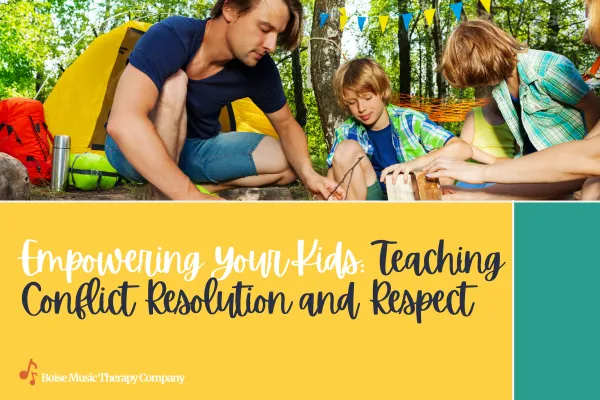
Empowering Your Kids: Teaching Conflict Resolution and Respect

Teaching kids how to handle conflicts and disagreements respectfully not only equips them with essential life skills but also fosters healthy relationships and builds their self-confidence. In this blog post, we'll explore some strategies for empowering your kids through conflict resolution.
1. Model Respectful Communication: Children often learn by example, so it's essential to model respectful communication in your own interactions. When conflicts arise between you and your partner or other family members, handle them calmly and respectfully. Your kids will observe and learn from your behavior, realizing that shouting or name-calling isn't the way to resolve disagreements.
2. Encourage Open Dialogue: Create an environment where your kids feel safe to express their feelings and concerns openly. Encourage them to share their thoughts and emotions without fear of judgment. Listening actively to your children helps them feel valued and heard, which is essential for building their confidence in resolving conflicts.
3. Teach Active Listening: Active listening is a fundamental skill in conflict resolution. Teach your children to listen attentively when someone else is speaking, without interrupting or immediately offering solutions. Encourage them to ask clarifying questions to better understand the other person's perspective.
4. Empathize and Validate Feelings: Empathy is a powerful tool in conflict resolution. Help your children develop empathy by asking them to imagine how the other person might feel. Validate their emotions by saying things like, "I can see why you feel that way" or "I understand that you're upset." This validation fosters a sense of empathy and respect for others' emotions.
5. Teach Problem-Solving Skills: Conflict resolution isn't just about understanding each other; it's also about finding solutions. Teach your children problem-solving techniques, such as brainstorming ideas, weighing pros and cons, and coming to a compromise. Emphasize that finding a solution that works for both parties is a win-win situation.
6. Encourage Independence: Empower your children to take responsibility for resolving their conflicts when appropriate. Offer guidance and support but encourage them to take the lead in finding solutions. This independence will boost their confidence and decision-making abilities.
7. Set Clear Boundaries: Establish clear guidelines for respectful behavior within your family. Discuss the importance of treating each other with kindness and respect. Make sure your children understand that certain behaviors, like physical violence or name-calling, are not acceptable and have consequences.
8. Practice Patience: Teaching conflict resolution takes time, and it's essential to be patient with your children as they learn these skills. Encourage them to practice what they've learned and reassure them that mistakes are part of the learning process.
